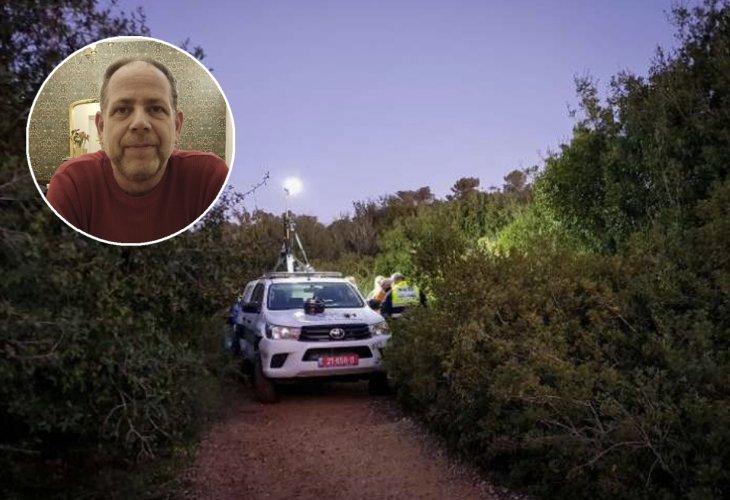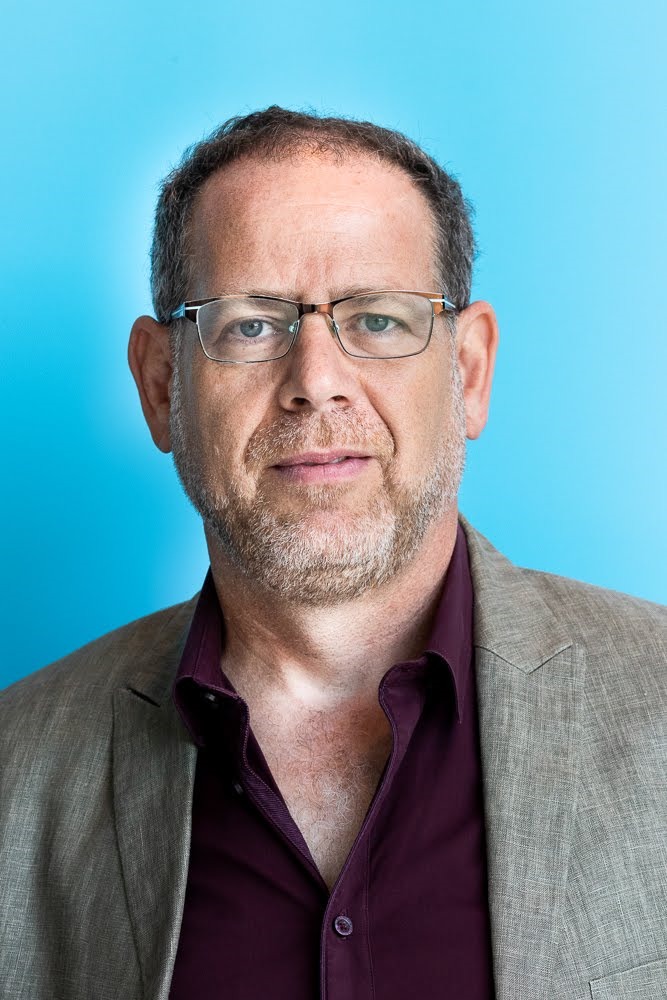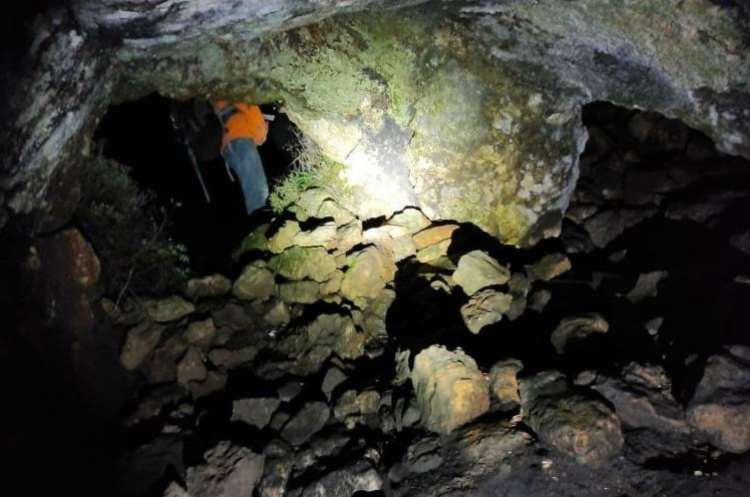"I Still Haven't Comprehended the Magnitude of the Tragedy": A Stirring and Tearful Interview with Binyamin Horgen
Hours after the search for Esther Horgen z"l began, as the small settlement of Tal Menashe in Samaria was transformed into a sort of military zone filled with forces, Binyamin Horgen, her husband, began to grasp the possibility that he had lost the woman who had faithfully been by his side for the past thirty years. A tearful interview.
 (In the circle: Binyamin Horgen)
(In the circle: Binyamin Horgen)Binyamin Horgen struggles to speak. Less than thirty days have passed since his wife, Esther, tragically and painfully passed away without having had the chance to say goodbye. A terrorist ambushed her in the woods near Tal Menashe, where she lived, taking her life brutally and leaving her family grieving and in pain. Binyamin, her husband, chooses his words carefully. The deep anguish is evident in his voice. Tearfully, he says he has yet to return to the routine of life he knew before the attack. "My family and I are slowly trying to return to normal activities, but life's routine as I knew it over the past thirty years will never be the same," he states, his voice echoing the pain.
In these days leading up to the shloshim for Esther's passing, Binyamin is quite busy. He is preparing to establish a monument at her grave and visit the plot of earth where his wife, who loved this land so dearly as to leave her home and country in France, was laid to rest.
The tragedy occurred less than a month ago, on a seemingly ordinary summer day that foreshadowed nothing of what was to come. "I woke up that morning as usual and everything seemed normal," he recalls. He goes back in his memory to the moment the tragedy struck him and his family. "I went to work as usual, and unlike those who claim to have had a premonition of something bad, I felt nothing. I only began to worry when I was unable to reach Esther. I called her to tell her I was on my way back from work, but she didn't answer. But even that didn't worry me too much. Sometimes people are unable to answer the phone. I thought maybe her battery died or she couldn't pick up. Esther worked with people through personal meetings, which occasionally prevented her from answering calls."

Searches Through the Night
Binyamin returned home after dark. "I arrived at the house, everything seemed normal, her car was outside, yet she still didn't answer my calls. At that moment, I began to suspect something was wrong." Overcome with anxiety, Binyamin began searching for Esther around the small settlement. "First, I turned to close family members and asked if they had heard from Esther. The answers were negative. I continued asking friends and neighbors, whether any of the women had seen Esther. The repeated negative responses deepened my fear: No one had seen her in the last few hours, and no one knew where she could be."
At that point, Binyamin decided to contact the police. "Even then, I was sure I would find her alive," he says. "I thought she went for a walk and fell, which explained her delay. I truly hoped it was just a minor accident." The police forces that arrived at the settlement first checked the woods where Esther would often go for walks, where they quickly found security camera footage capturing Esther heading towards the woods, to her tragic fate.
How did you receive the devastating news?
"I was sitting at home with family and friends, while the search operation continued outside, tense and worried, when suddenly the council head and the rabbi of the settlement entered. The moment we saw them at the entrance, we understood they weren't bearing good news when they delivered the worst message of all. The whole house fell silent; my family and I tried to grasp the bitter news that had so unexpectedly befallen us. At those moments, I didn't feel the pain of parting from a dear family member. I simply couldn't process the news. In fact, even today, I still haven't comprehended the enormity of the tragedy.
"Life since then has been completely different from what we knew. We are trying to live with this news. My children and I, alongside Esther's three sisters and her elderly parents—whom we made sure didn't hear about the murder from anyone else by sending one of the sisters to their home to remove the phone, preventing them from hearing the news from the media or strangers—are still trying to process the news. Incidentally, our main concern was informing Esther's elderly parents. They were gradually informed by psychologists and social workers who visited their home on the night of the murder and delivered the difficult news. Like us, they received the news with shock and rushed to our home to be together during those difficult moments."

When was your last conversation?
"We spoke in the morning hours on the day of the murder. It was a fairly routine conversation. I later realized that it was, in fact, our last conversation."
After the shivah, you announced a project to commemorate her. Where does it stand?
"Indeed. Firstly, we thought about the place of her murder, and therefore near our home, at the site of her murder, we intend to strengthen the Jewish community in the area by establishing a park that will strengthen the settlement. We have launched a crowdfunding project which has already reached about a million shekels, with the aim of completing the site's construction and naming it after her. Additionally, various initiatives are emerging from different directions. People from across the country are reaching out to us; people are organizing study evenings in her memory, and we also want to encourage the teaching of Jewish psychology, which Esther engaged in during her recent years, as I strongly believe in the power of our Jewish sources to strengthen people."
Recently, the terrorist who killed Esther was apprehended. Are you worried that he will not receive the maximum punishment or might be released in a future prisoner exchange?
"I very much hope he will never see the light of day, but I channel the pain elsewhere. I know many families find this especially important, but I am not focusing on that, rather on spreading light and love. I will, of course, cooperate with the police and investigators, but I try to concentrate less on the fate of the cruel terrorist and do not plan on attending the trial. It is important to me that he was caught, mainly because it will prevent him from carrying out further attacks in the future. From what I understood from security forces, he planned more attacks, and I very much hope he will never see the light of day again."
Despite this, Binyamin adds that he had hoped the terrorist would meet a different fate. "I had no doubt from the start that he would be arrested. Security forces arrived at Tal Menashe on the night of the murder and did not leave until the successful end; they did it efficiently, and it was personally clear to me he would be caught, although I hoped he would resist arrest, and the event would end differently..."
"Only After Her Passing Did I Discover Esther's Good Deeds in a Different Light"
Binyamin Horgen immigrated as a youth from France. Unlike him, who came with his family, Esther, his future wife, immigrated alone at the age of 18. A few years later, the two immigrants married and built their home together before eventually moving to Tal Menashe. "Esther studied art and worked in Judaica, children's illustration, and more. What characterized her greatly was her constant desire to advance. This led her to study Jewish psychology, where she used her strength to help many people, often fully volunteering. Her work was to help people overcome crises in their lives, and she sometimes engaged in marital counseling. Throughout this time, she focused on viewing all people positively and life in general with a good eye, seeing the good in everything and building towards the future. This is the message I believe she would have wanted us to share after her passing."
Was there anything you were surprised to learn about Esther z"l during the shivah?
"Certainly. Many of the things I heard, I did know, but after her passing, I heard them with different ears and better understood how special she was. Suddenly, the context in which I knew these deeds was illuminated in an entirely new light. I realized that being by her side for the past thirty years didn't allow me to fully understand her actions, because, after all, we had gone through those years together, growing side by side.
"During the shivah," Binyamin continues, "Arab citizens from all over the country reached out, wishing to visit and offer condolences. It was interesting to discover how many non-Jewish citizens were pained by Esther's tragic passing. Among them were Arab workers who had been shocked by the murder. Among the thousands of Jews who donated to the commemoration project, there were also Arabs who participated. There are good people on the other side as well."
Alongside the known things he discovered about Esther, Binyamin also attests to stories about his wife that he hadn't been aware of. "Due to the need for discretion, I couldn't know details about her visitors, but after the shivah, I came across a particularly harrowing case that she had been involved in. It happened when, during one of the days of the shivah, a man about thirty years old came to my home. He sat on the side, seeming uncomfortable with the situation. I realized he wanted to share something but was struggling to do so in front of the group of mourners. I approached him and took him aside, asking if I could help. Then he told me that he wasn't supposed to be alive today. It turned out this man had considered ending his life due to events he experienced, and just before taking an irreversible step, he sought therapy sessions with Esther. 'After three meetings, she saved my life,' he shared tearfully. "That moved me deeply, and I assume he is not the only one who owes his life to my wife. In her passing and in her life, Esther commanded us to live," concludes Binyamin.

